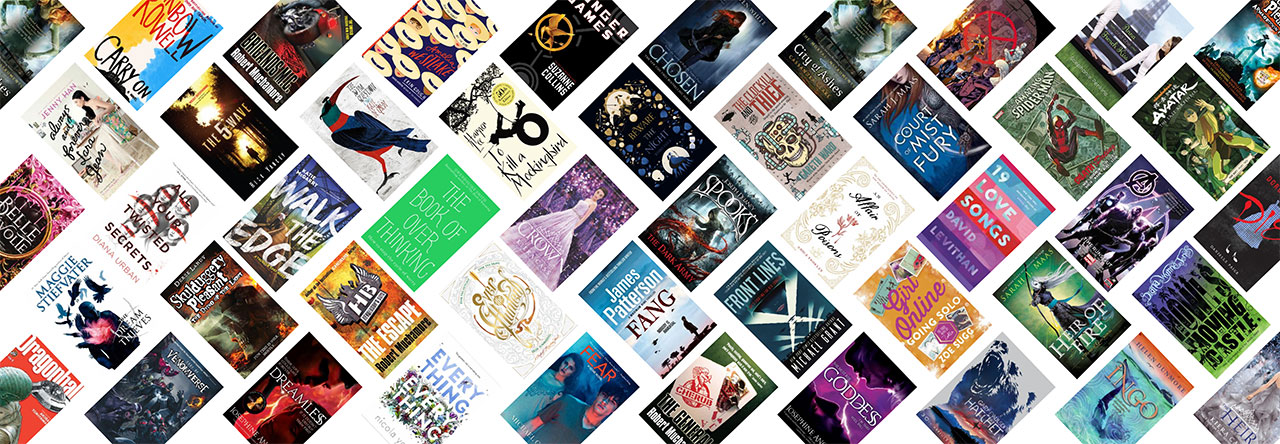
Clay / David Almond – I have enjoyed David Almond’s books such as Skellig and Kit’s Wilderness because the stories and characters are so gripping and Clay was no exception. The story is told by Davie, a teenage boy. Davie is an altar boy, along with his best mate Geordie, and they make money at funerals and hang out together in their hideout plotting out the next attack on a rival gang of boys. Apart from the threat of Mouldy, the leader of the rival gang of boys, (a boy as big as a man and often reeking of beer who seems to take their battles too far) theirs seems a comfortable, naive existence.
Then Stephen Rose moves in with his aunt “Crazy Mary”. Stephen Rose was sent away to train as a priest at 11 years old but was thrown out and returned to his parents. Shortly afterwards his mother father died and his mother went mad.
Davie’s mum and the priest encourage him to make friends with this lonely boy who has come to the village in such tragic circumstances. Stephen has a gift for making beautiful creatures out of clay. He loves clay because it is “alive” – it’s the material from which God shaped Adam and the silky suppleness of wet clay is malleable like the human skin.
This book, like the others, is grounded in the real world. Because the world and the relationships between the characters and everything is so real it is easy to enter fully and I think it is the whole-hearted acceptance of the world which makes the supernatural events as they emerge (so slowly like a dripping tap) so unsettling.
The story is interesting for the dynamics of the relationships between all the characters and the movement from innocence to terrible knowledge. The book explores ideas of power of creation, the right of creation, good and evil, revenge …
I would recommend this book to: people who like realism with a bit of the fantastical (but incredibly believable) thrown in and also books like the Robert Cormier’s The Chocolate War which explore the dynamics of human relationships and power struggles.
The main characters in the book are boys but I think it is suitable for girls as well.
I would also recommend this as something different to try for people who like gritty books like Precious as I think, although it enters into fantasy, it carries the same intensity and delves similarly into human relationships and power struggles. I would also potentially recommend it to vampire book lovers because Stephen Rose definitely has the makings of an undead hero. I think people who enjoyed Abssynia and The Red Shoes etc. by Ursuala Dubosarsky would enjoy these.

My name is Mina / David Almond – This is a new book by David Almond. It is a diary by Mina, a strange and creative girl who doesn’t quite fit in with school and other kids. The book has a bold format which is part of the storytelling style. It was more difficult to just lose myself in this story compared to other books written by David Almond because the character,rather than the narrative, is given central stage. Also perhaps this story is less about relationships between people than it is about what is going inside the head of one central character. This, however, is just because of my personal preference of how to enjoy a story; I’m not that great at reading graphic novels and I’m not a patient reader so I don’t enjoy picking and piecing out all the bits and pieces of a story. At the same time the story has stuck with me and I keep going back and puzzling over bits I didn’t quite understand.
What I didn’t realize until I read someone else’s review of this book, which is pretty obvious (except I’m no good at remembering character names) that this is Mina from Skellig before she meets Michael (she meets him right at the end of the book, he is the new boy who has moved in next door so this is a prequel to Skellig)
Because this is a very visual book I would recommend this to people who like reading graphic novels (although it plays more with font rather than illustration) and also books like Shaun Tan’s The Arrival. I would also recommend it to people who enjoyed Sophie’s World because of the slightly disjointed way the story is put forward – you sort of need to piece it together – and also the way philosophical thought and ideas are explored in the book. Maybe also people who enjoy reading diary formats. Also I think again readers of Ursuala Dubosarsky’s books and particularly people who enjoyed Abyssinia would enjoy this book.




Comments are closed.